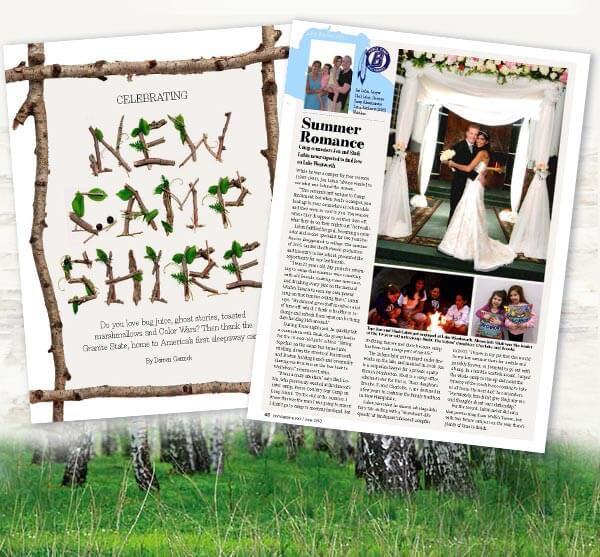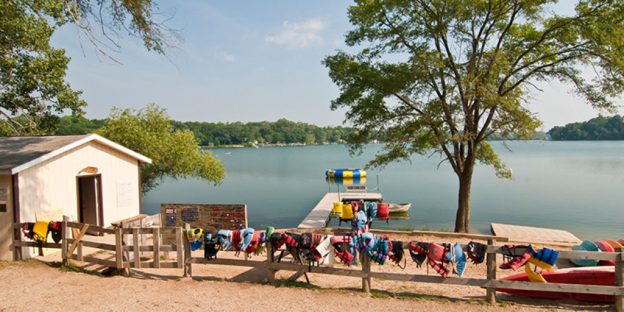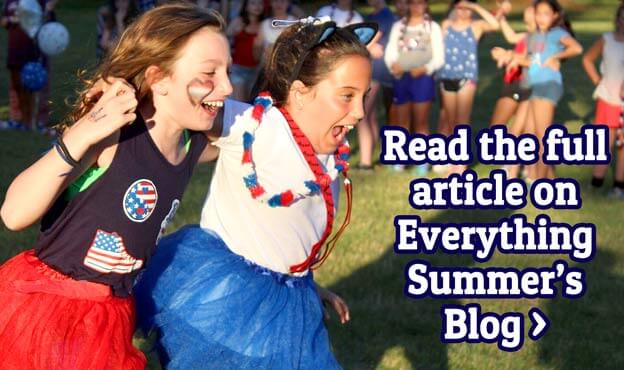 We love this short video shared with us by Tessa, one of our all-star Birchmont Group Leaders. We are very encouraged to see thought leaders around the country like Stanford’s Graduate School of Education are studying and validating the importance of summer camp in children’s lives. Of course this is something us camp folks already know, but great to see those in traditional education catching on too!”
We love this short video shared with us by Tessa, one of our all-star Birchmont Group Leaders. We are very encouraged to see thought leaders around the country like Stanford’s Graduate School of Education are studying and validating the importance of summer camp in children’s lives. Of course this is something us camp folks already know, but great to see those in traditional education catching on too!”
Author Archives: Camp Birchmont
The Importance of Summer Camp

Share the Love: Camp Birchmont Magazine Story
New Hampshire Summer Camp Memories
Do you love bug juice, ghost stories, toasted marshmallows and Color Wars? Then thank the Granite State, home to America’s first sleepaway camp.
BY DARREN GARNICK for NHMagazine.com
New Hampshire is best known as the first-in-the-nation state for the presidential primaries, but it is also the birthplace of America’s first overnight summer camp. In 1881, Dartmouth College dropout Ernest Balch bought Squam Lake’s Chocorua Island and created Camp Chocorua — aimed at the children of wealthy tourists visiting the White Mountains. His goal was to prevent as many rich kids as possible from becoming spoiled brats.
A recent exhibit at the Museum of the White Mountains at Plymouth State University put it this way: “Rather than let the self-indulgence of high society erode the character of these youth, Balch envisioned a different kind of resort; one where boys could find challenge, not champagne, canoes instead of crystal chandeliers, and an earthen bed instead of fine linen. He wanted the boys to learn self-governance, the value of money, and a strong work ethic while experiencing adventures like those portrayed in dime novels.”
Summer Romance

Jon and Shuli Lubin
Lawyer (Jon) and Summer Camp Administrator (Shuli)
Camp counselors Jon and Shuli Lubin never expected to find love on Lake Wentworth.
While he was a camper for four seasons (1995-1998), Jon Lubin “always wanted to see what was behind the curtain.
“This certainly isn’t unique to Camp Birchmont, but when you’re a camper, you look up to your counselors as role models and they seem so cool to you. You wonder where they disappear to on their days off, what they do on their nights out,” he recalls.
Lubin fulfilled his goal, becoming a counselor and soccer specialist for two years before he disappeared to college. The summer of 2005, sandwiched between graduation (University of Pennsylvania) and his entry to law school (Yale Law), presented the opportunity for one last hurrah.
“I was 22 years old. My goals for returning to camp that summer were reuniting with old friends, making some new ones, and drinking every pint on the menu at Wolfe’s Tavern to earn my own pewter mug on that famous ceiling there,” Lubin says. “Birchmont gives staff members a lot of time off, which I think is healthy to recharge and refresh from what can be tiring days herding kids around.”
During those nights out, he quickly felt a connection with Shuli, the group leader for the 10-year-old girls’ cabins. “Sitting together on the camp bus turned into strolling down the streets of Portsmouth and Boston holding hands and eventually sharing our first kiss on the bus back to Wolfeboro,” reminisces Lubin.
Shuli was the leader of the 10-year-old girls group at Camp Birchmont.
“It was a crazy situation,” says Shuli Lubin, who previously worked at Birchmont’s sister camp, Pierce Country Day Camp on Long Island. “By the end of the summer, I knew this was the man I was going to marry. I didn’t go to camp to meet my husband, but it’s fitting that we met there because camp has been such a huge part of my life.”
The Lubins later got engaged under fireworks on the lake and married in 2009. Jon is a corporate lawyer for a private equity firm in Manhattan. Shuli is a camp office administrator for Pierce. Their daughters Brooke, 5, and Charlotte, 3, are destined in a few years to continue the family tradition in New Hampshire.
Lubin jokes that he almost sabotaged the fairy tale ending with a “Braveheart-like speech” at Birchmont’s farewell campfire in 2005. “I knew in my gut that this would be my last summer there for a while and possibly forever, so I wanted to go out with a bang. In a terrible Scottish accent, I urged the whole camp to rise up and resist the tyranny of the coach buses coming to take us all home the next day,” he remembers. “Fortunately, this didn’t give Shuli any second thoughts about our relationship.”
For the record, Lubin never did earn that pewter mug from Wolfe’s Tavern, but with two future campers on the way, there’s plenty of time to finish.
Download the Full Article as a PDF »
Read the full article online at nhmagazine.com »
The Long-Term Value of Maintaining Off-Season Summer Relationships
Featured in Everything Summer Blog, November 2017
The late fall and early winter frequently mark the time of year that camps begin holding organized reunions or get-togethers for current campers. Among the lifelong benefits of attending overnight camps or teen programs are the incredible friendships that children and teens are able to make…
I send my kids to sleep-away camp to give them a competitive advantage in life
This recent article from The Washington post describes how “opting out of the things-to-put-on-the-college-application arms race,” can be beneficial for your camper. There are “huge benefits of summer camp”, which the author believes give her campers the “true competitive advantage — in life.”
I send my kids to sleep-away camp to give them a competitive advantage in life
By Laura Clydesdale, Washington Post
“Do you even like your children?” the woman I had just met asked me.
The audacity of the question took my breath away. I had been chatting with her, explaining that my kids go to sleep-away camp for two months every year.
I quickly realized two things at once: She was obnoxious, and she actually didn’t care if I missed my kids during the summer. She was talking about something else.
I didn’t have to tell her the reason I “send them away” for most of the summer is because I like them. They adore camp, and it’s actually harder on me than it is on them. I often tell people that the first year they were both gone, it felt like I had lost an arm. I wandered around the house from room to room experiencing phantom limb pain.
Now, instead of being offended, I got excited.
I was going to be able to tell her something that my husband and I rarely get to explain: We do it because we truly think it will help our kids be successful in life. With under-employment and a stagnating labor market looming in their future, an all-around, sleep-away summer camp is one of the best competitive advantages we can give our children.
Huh?
Surely, college admissions officers aren’t going to be impressed with killer friendship bracelets or knowing all the words to the never-ending camp song “Charlie on the M.T.A.” Who cares if they can pitch a tent or build a fire?
Indeed, every summer my kids “miss out” on the specialized, résumé-building summers that their peers have. Their friends go to one-sport summer camps and take summer school to skip ahead in math. Older peers go to SAT/ACT prep classes. One kid worked in his dad’s business as an intern, while another enrolled in a summer program that helped him write all his college essays.
Many (this woman included) would say that I’m doing my children a serious disservice by choosing a quaint and out-of-date ideal instead. There are online “Ivy League Coaches” that might say we are making a terrible mistake.
We don’t think this is a mistake at all. It might not be something to put on the college application (unless my child eventually becomes a counselor), but that isn’t the goal for us.
Our goal is bigger.
We are consciously opting out of the things-to-put-on-the-college-application arms race, and instead betting on three huge benefits of summer camp, which we believe will give them a true competitive advantage — in life:
1. Building creativity.
2. Developing broadly as a human being.
3. Not-living-in-my-basement-as-an-adult independence.
MIT’s Erik Brynjolfsson says, in his book “The Second Machine Age,” that we have reached a pivotal moment where technology is replacing skills and people at an accelerated pace. He argues that creativity and innovation are becoming competitive advantages in the race against artificial intelligence, because creativity is something a machine has a hard time replicating.
The problem is that creativity seems so intangible.
Steve Jobs once said, “Creativity is just connecting things.” He believed that people invent when they connect the dots between the experiences they’ve had. To do this, he argued that we need to have more experiences and spend more time thinking about those experiences.
Indeed. According to Adam Grant’s book “Originals: How Non-Conformists Move the World,” researchers at Michigan State University found that to receive the Nobel Prize, you need deep study in your field and those broad experiences Jobs was talking about. They studied the winning scientists from 1901 through 2005 and compared them with typical scientists living at the same time. Grant writes that the Nobel Prize winners were:
* Two times more likely to play an instrument, compose or conduct.
* Seven times more likely to draw, paint or sculpt.
* Seven-and-a-half times more likely to do woodwork or be a mechanic, electrician or glassblower.
* Twelve times more likely to write poetry, plays, novels or short stories.
* And 22 times more likely to be an amateur actor, dancer or magician.
You read that right. Magician.
It’s not just that this kind of original thinker actively seeks out creative pursuits. These original experiences provide a new way of looking at the world, which helped the prize-winners think differently in their day jobs.
The beauty of summer camp is that not only do kids get to do all sorts of crazy new things, they also get to do it in nature, which lends its own creative boost.
Most importantly, my kids have such intensely packed schedules full of sports, music, art classes, community service and technological stimulation throughout the school year that it makes finding these all-important quiet mental spaces more difficult.
Summers provide a much-needed opportunity for my children to unplug, achieve focus and develop those creative thought processes and connections.
Okay, okay. Creativity might be a compelling tool to beat out that neighbor girl applying to the same college, but what about this “developing broadly as a human being” stuff?
I didn’t come up with that phrase. Harvard did.
William Fitzsimmons, dean of admissions at Harvard, has penned a compelling letter to parents. It practically begs and pleads with them to reevaluate the summer extracurriculars race and to “bring summer back,” with an “old-fashioned summer job” perhaps, or simply time to “gather strength for the school year ahead.”
Fitzsimmons writes, “What can be negative is when people lose sight of the fact that it’s important to develop broadly as a human being, as opposed to being an achievement machine. In the end, people will do much better reflecting, perhaps through some down time, in the summer.”
In terms of “developing broadly as a human being,” summer camp can provide an impressive list of life skills.
Studies over the past decade have shown outdoor programs stimulate the development of interpersonal competencies, enhance leadership skills and have positive effects on adolescents’ sense of empowerment, self-control, independence, self-understanding, assertiveness, decision-making skills, self-esteem, leadership, academics, personality and interpersonal relations.
Now for the cherry on top: Independence.
Michael Thompson, the author of “Homesick and Happy,” has written, “… there are things that, as a parent, you cannot do for your children, as much as you might wish to. You cannot make them happy (if you try too hard they become whiners); you cannot give them self-esteem and confidence (those come from their own accomplishments); you cannot pick friends for them and micro-manage their social lives, and finally you cannot give them independence. The only way children can grow into independence is to have their parents open the door and let them walk out. That’s what makes camp such a life-changing experience for children.”
So, yes, Ms. Tiger Mom, I am letting my children walk out the door and make useless lanyards for two months.
They might not have anything “constructive” to place on their college application, but they will reflect, unwind, think and laugh. They will explore, perform skits they wrote themselves and make those endless friendship bracelets to tie onto the wrists of lifelong friends.
The result will be that when they come back through our door, we’re pretty sure that, in addition to having gobs of creativity and independence, they’ll be more comfortable with who they are as people.
And just maybe they’ll even bring back a few magic tricks.
Laura Clydesdale lives in Berkeley, Calif., with her husband and children. She blogs at lauraclydesdale.com. Follow her on Twitter @l_clydesdale.
Rules for Social Media, Created by Kids
We hope you find this article helpful in maintaining a healthy and appropriate balance between your child’s real and digital lifestyle.
Rules for Social Media, Created by Kids
by: Deborah Heitner, The New York Times
The challenge of growing up in the digital age is perfectly epitomized by the bikini rule.
“You can post a bikini or bathing suit picture only if you are with your siblings or your family in the picture,” said one middle-school girl who was participating in a focus group on digital media. In other words, don’t try too hard to be sexy and you’ll be O.K. in the eyes of your peers.
By high school, the rules change. At that stage, a bikini picture often is acceptable, even considered “body positive” in some circles.
As an educational consultant, I lead workshops on digital media at schools around the country, giving me an unusual glimpse into the hidden world of middle and high school students. While parents sometimes impose rules for using social media on their kids, the most important rules are those that children create for themselves.
And these often unspoken rules can be dizzying.
Girls want to be sexy, but not too sexy. Be careful which vacation photos you share so you don’t seem to brag. It’s O.K. to post photos from a fun event, but not too many.
In one focus group I held recently with seventh-grade girls in an affluent suburb, all of the girls were avid Instagram and Snapchat users. It was clear that they understood the dynamics of presenting a persona through the images they posted. It was also clear that they had a definite set of rules about pictures.
Aware of their privileged socioeconomic status, they talked about how it would not be O.K. to share vacation pictures of a fancy hotel, using the example of a classmate who had violated this rule. Like many unspoken social codes, this one became vivid to these girls upon its violation.
As part of a school project the girl had displayed pictures from her vacation at a foreign resort. Her classmates considered it an immature form of “bragging,” and said other kids had gone on even “better trips” or lived in “amazing houses” but “knew better” than to post about it.
The same girls identified another peer as “too sexual,” a judgment some parents even encouraged. A few said their moms did not want them to hang out with a particular girl because she “acts too sexy.” One of the girls expressed this sentiment in a group text that included the peer in question, leading to hurt feelings and conflicts.
Middle school can be an especially complicated time for girls. They are experimenting with social identity, even as their always-on digital world intensifies the scrutiny. Many want to be seen as pretty (even sexy, in some ways), but also as innocent and as “nice.” This is an impossible balancing act. Parents can help by suggesting more empowering alternatives to posting bathing suit pictures.
Another group of seventh graders (of mixed gender and in a different community) told me the rules regarding how many pictures to post from an event. There was a sense of what was acceptable and what was not. Posting one to three images was fine, they said, but all agreed it was “obnoxious” to “blow up people’s phones” with a huge stream of images from a party or event.
These kinds of images can lead to feelings of exclusion as well. Imagine watching a party unfold, in real time, on Snapchat or Instagram, when you aren’t there. The experience can be absolutely devastating to tween and teenage children. When I asked these seventh graders about it, they said that it happened all the time, and that it can be hard to deal with.
With their lives constantly on display, it’s a challenge for even well-intentioned tweens to avoid making others feel excluded. The “rule” was that it is “better not to lie or make excuses” if you are with one friend and another friend wants to hang out. Better to be honest and say, “I have plans,” than to lie and say, “I have too much homework,” then take a risk when sharing images of yourself out with friends later.
Parents often feel as if their children’s smartphones are portals to another world — one that they know little to nothing about. A study released last month found that fewer than half of the parents surveyed regularly discussed social media content with their tween and teenage children.
But parents need to know that their child’s peers have created their own set of rules for social media, and that they should ask their kids about them. What are you “allowed” to post, and what seems to be off-limits? Are the rules the same for boys and girls? Why or why not? Can you show me an example of a “good” post, or a “bad” one? Does social media ever stress you out (and can you give yourself a break)? How can kids in your group make group texts or social media nicer for everyone?
In a study published last summer, researchers at the University of California, Los Angeles, found that the pleasure centers in teenagers’ brains respond to the reward of getting “likes” on Instagram exactly as they do to thoughts of sex or money. And just as parents try to teach children self-control around those enticements, they must also talk to them about not falling victim to behavior they will regret when craving those “likes.”
As parents, we don’t want our kids to make a big mistake online: writing something mean in a group text, posting a too-sexy picture or forwarding one of someone else. According to a Pew Research Center survey, 24 percent of teenagers are online “almost constantly,” so it’s essential that they know how to handle themselves there.
Getting your children to articulate the unspoken rules can be the first step in helping them be more understanding of their peers. When we observe our children harshly judging others who have a different sensibility about the use of social media, they need us to set aside our judgments about their world, and help them cultivate empathy for one another.
Devorah Heitner is the author of “Screenwise: Helping Kids Thrive (and Survive) in Their Digital World.”

Lessons From Camp
Free from school-year demands, summer camps are a key venue for social-emotional learning
By Leah Shafer, on July 1, 2016 11:23am
Summer camp: For so many kids, it signifies carefree days of swimming, playing sports, singing songs, and reveling in freedom from the demands of the school year. Camp means no homework, no studying, and no teachers.
But significant learning is still taking place at summer camp — even if the campers don’t necessarily realize it.
Summer Learning (Without the Books)
All those classic camp dynamics — being away from home and parents, making new friends, being part of a team, and trying new things — are building blocks to crucial social-emotional skills.
Social-emotional learning (SEL) can encompass a variety of practices, but most experts agree that a child with high SEL skills is successful in five core areas: self-awareness, self-management, social awareness, relationship skills, and responsible decision making. These skills are increasingly understood to be central to success in school and in professional life beyond, but schools don’t always have the time or capacities to teach them explicitly. Obligations to complete curriculum and boost student achievement often make it difficult for teachers to prioritize community building, goal-setting, or problem solving in their classrooms.
Unconnected to the commitments of the school day, summer camps (particularly overnight camps) can dive head-first into social-emotional learning — and many do. These opportunities are especially importance for low-income students, many of whom already have fewer opportunities to gain these skills outside of school.
A 2005 study of 80 camps by the American Camp Association (ACA) found significant growth in children’s social-emotional skills after a session of summer camp. Camp staff, parents, and children reported increases in children’s self-esteem, independence, leadership, friendship skills, social comfort, and values and decision-making skills, from the beginning to the end of a session.
What a Good Camp Experience Looks Like
It’s not just the new environment and flexible schedule that builds kids’ social-emotional skills. Many camps have an intentional focus on social-emotional learning. YMCA camps, for instance, explicitly discuss their four values — honest, caring, respect, and responsibility — constantly, through songs, skits, and rallies. And most camps train staff to coach kids on becoming more independent, socially aware, and reflective.
In particular, camps foster relationship skills and social awareness by:
- Introducing children to an entirely new group of peers. Camp may be the first time children have spent substantial time with people whose background — home, race, or religion — is different from their own.
- Setting up opportunities for children to find their own friends. According to education researcher and longtime camp counselor and director Claire Gogolen, counselors often begin a session by leading icebreakers and regularly sorting a cabin group into different pairs. These activities give campers explicit opportunities to get to know each other, allowing them to figure out who they want to become better friends with.
- Creating a space where silliness is accepted, and bullying is not. Without the need to plunge into academic content, camps have time to use the beginning of a session to prioritize group norms, says learning specialist and former camp counselor and director Ari Fleisher. Counselors can make it very clear that bullying and teasing are not acceptable. At the same time, camps can encourage songs, jokes, and general silliness that allow campers to relax and be themselves.
- Taking a break from technology. Many overnight camps restrict or prohibit phones and computers. For many campers, this means it’s the first time they’ve made friends without the help of Instagram or Snapchat, and they learn how to navigate social cues to build and maintain friendships in “real life.”
- Modeling teamwork and sportsmanship. During staff training, many camps stress the importance of adults demonstrating cooperation and friendship to their campers. When campers are surrounded by positive role models — particularly role models closer to their own age than teachers are — they learn how to get along with peers who may be different from them.
Camps also nurture self-awareness, self-management, and responsible decision making by:
- Requiring children to solve day-to-day problems on their own. With limited contact with parents, campers have to learn how to manage their own conflicts, whether it’s a disagreement with a bunkmate or not getting their first-choice activity.
- Presenting activities that are new to everyone. Counselors often purposefully lead games and activities that none of their campers have tried before, says afterschool specialist and former camp counselor Nicky DeCesare. Without the fear that some peers will already have a leg-up on lava tag or basket making, children may be more likely to decide to try new things.
- Offering kids the chance to set and accomplish daily goals. The sheer amount of new activities makes it possible for kids to continually set and achieve goals, deepening their understanding of personal limits. One day a camper may be set on reaching the top of the climbing wall, and the next she may be determined to collaborate with her group to create a new song.
- Helping children uncover new skills. Kids who are usually immersed in academics may become aware of new skills that they didn’t know they had. For children who struggle in school, these opportunities can increase self-confidence.
- Providing time for reflection. Many camps begin or end the day with reflection activities, in which campers can think about the challenges they’ve faced, how they’ve grown, and what they’re excited for. These moments, rare in a typical school day, can develop self-awareness and mindfulness for all kids.
Additional Resources
Read the full American Camp Association report.
Going to Sleepaway Camp As A Kid Might Prepare You Better for College
This recent article from NBC News describes how attending summer camp can help your child ease into college campus life with a little more ease. The benefits of summer camp last a lifetime!
Going to Sleepaway Camp As A Kid Might Prepare You Better for College
by Allison Slater Tate, NBC News
Here’s a more fun way to prepare for college than studying: Go to overnight camp.
Summer camp may not help you ace your college calculus class, but experts say being away from home when you’re younger can help you ease into campus life.
“While we don’t track students who have participated in an overnight camp experience, I can comfortably speculate that those who have are more apt to apply the tools they learned there in resolving roommate conflicts, problem-solving in small groups, and learning to live with people from different backgrounds,” Kenyon College vice president for student affairs Meredith Harper Bonham told NBC News.
While some students struggle when they leave home for the first time, veterans of overnight camp arrive on campus armed with some important lessons in communal living.
“Many of our students have never had to share a room, or even a bathroom, with a sibling,” Bonham said, adding that some students have grown up in “highly segregated areas with respect to race, ethnicity and socioeconomic class.”
Overnight camp forces the type of constant interaction, negotiation and direct communication that students will face in the communal, diverse environment of a residential college,” she added.
“ON TOP OF FORGING FRIENDSHIPS FOR A LIFETIME, CAMP TAUGHT ME HOW TO BE AWAY FROM MY PARENTS, INTERACT WITH COMPLETE STRANGERS, AND BECOME INDEPENDENT.”
Benjamin Eidelberg, 22, felt his camp experience came in handy when he got his undergraduate degree. He spent summers at Camp Cobbossee in Monmouth, Maine, starting at age 10.
“Camp was a great way to prepare me for college and leaving home,” Eidelberg, who got his Bachelor’s from the University of Maryland and is now getting a Master’s there, told NBC News. “On top of forging friendships for a lifetime, camp taught me how to be away from my parents, interact with complete strangers, and become independent.”
He drew parallels between the first day of college, when he didn’t know anyone, and the first day of camp, where the only campers he knew were his brother and two family friends.
“Like in college, I was forced to meet and socialize with strangers and ultimately develop my group of friends,” he said.
Eidelberg also found camp fertile ground for developing confidence and a new perspective.
“Camp served as an escape from life at home, whether it was school or just Pikesville [Maryland] in general,” he said. “It was a place, similar to college, that was fresh and where others did not have strong predispositions, at least prior to my first couple of summers.”
Kenyon College’s Bonham said she sees the benefits of summer camp for her own children too: whether it’s sharing care packages with their bunkmates or getting out of their comfort zones and trying new activities.
“While I like to think they learned all of these qualities as toddlers, receiving the additional reinforcement as pre-teens and teenagers can only help as they develop into humane, socially conscious adults,” she said.
Though summer camp experiences don’t often make it onto college applications, college admissions counselor Sara Harberson of Admissions Revolution believes they could still serve applicants well.
“The memories and lessons students have from summer camp will imbue them with a genuineness and adaptability which may come through in unpredictable ways in their essays, letters of recommendation, and interviews,” Harberson said. “Most importantly, their approach to the college process and their choices about how to spend their remaining summers are usually quite thoughtful, because they have a taste of what it means to be happy with their surroundings. That might make going to camp as a younger child priceless in the end.”
Firelight
By Greg Howes, Director
For many years at Birchmont one of the richest camp traditions that helps our camp community come to closure each August is called “Candlelight”. Even during my first summer – 1990 – I can  recall missing the last two days of camp and having my co counselor Sean McQuade tell me how much I would be missing by not being there for Candlelight night. In a subsequent summer, I came to find out he was quite right. It’s a wonderful night around a huge beautiful campfire where all campers and staff gather in a circle around the fire to help cap the season with thanks and reflections from the summer. Supervisors, group leaders and Birchmont “B” winners from each group each take a brief turn standing in front of the fire and one by one speak from the heart sending their own positive message of thanks, experiences and reflection. It’s a powerful and moving experience – if not downright emotional. Each camper adds their candle to an ever growing circle of flames until the fire is extinguished with a closing ceremony. Im sure it’s a memory etched deep into the mind of most alumni that have been present for it. Tonight , we mark a new opening night tradition at Birchmont.
recall missing the last two days of camp and having my co counselor Sean McQuade tell me how much I would be missing by not being there for Candlelight night. In a subsequent summer, I came to find out he was quite right. It’s a wonderful night around a huge beautiful campfire where all campers and staff gather in a circle around the fire to help cap the season with thanks and reflections from the summer. Supervisors, group leaders and Birchmont “B” winners from each group each take a brief turn standing in front of the fire and one by one speak from the heart sending their own positive message of thanks, experiences and reflection. It’s a powerful and moving experience – if not downright emotional. Each camper adds their candle to an ever growing circle of flames until the fire is extinguished with a closing ceremony. Im sure it’s a memory etched deep into the mind of most alumni that have been present for it. Tonight , we mark a new opening night tradition at Birchmont.
Similar to Candlelight in some ways , FIRELIGHT will embody the idea of Welcome, and that we are all part of this unique and special adventure on which we are to embark together. We inspire each and every person who is a part of camp, new and old, to think about a personal goal for the summer around a big campfire, one in boys camp and another in girls. Camp supervisors and counselors will say some brief remarks, and we will gather under the stars and set off on a course for the best possible summer, as members of what Greg Pierce is fond of calling ” the biggest family or smallest community most of us will ever be proud to be a part of”. Here’s to the start of another rich and rewarding Birchmont Tradition. The only downside? FIRELIGHT will NOT include S’mores! But we will have plenty of those campfires too! 🙂

So on the second night of camp this happened… Our Firelight, with a beautiful moon and Jupiter and Venus in view …
 Camp Birchmont
Camp Birchmont

